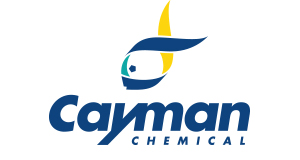MPLA, CAS 1246298-63-4
MPLA, CAS 1246298-63-4
SKU
CAY25998-100
Packaging Unit
100 µg
Manufacturer
Cayman Chemical
Availability:
loading...
Price is loading...
Formulation: A solution in sterile, double distilled water
Formal Name: 3-[(3R)-3-hydroxytetradecanoate], 2-deoxy-6-O-[2-deoxy-3-O-[(3R)-1-oxo-3-[(1-oxotetradecyl)oxy]tetradecyl]-2-[[(3R)-1-oxo-3-[(1-oxotetradecyl)oxy]tetradecyl]amino]-4-O-phosphono-β-D-glucopyranosyl]-2-[[(3R)-3-hydroxy-1-oxotetradecyl]amino]-α-D-glucopyranose, monoammonium salt
Formula Markup: C96H180N2O22P • NH4
Formula Weight: 1763,5
Shelf life (days): 730
CAS Number: 1246298-63-4
Notes: MPLA is a synthetic derivative of lipid A, a component of bacterial LPS, that is hexa-acylated in contrast to lipid A monophosphoryl from S. minnesota R595 (Item No. 25848), which can be hepta-, hexa-, or penta-acylated.{47007,47004} MPLA is an agonist of toll-like receptor 4 (TLR4).{47004} Intramuscular injection of MPLA (5 μg/100 μl) in mice increases injection site transcription of MyD88- and TRIF-dependent genes as well as genes encoding cytokines and cytokine receptors, chemokines, and molecules involved in the complement pathway and antigen presentation.{47004} It also increases the number of CD3+ T cells and CD11c+ GR1+ dendritic cells recruited to draining lymph nodes and increases serum levels of CCL2/MCP-1, CXCL1, CSF3, IL-6, and IL-10 by more than 10-fold compared to control animals. Emulsions containing MPLA have demonstrated efficacy as vaccine adjuvants in several mouse models, enhancing immune responses to HIV gp140 antigen and providing protection against M. tuberculosis infection.{47005,47006}
Formal Name: 3-[(3R)-3-hydroxytetradecanoate], 2-deoxy-6-O-[2-deoxy-3-O-[(3R)-1-oxo-3-[(1-oxotetradecyl)oxy]tetradecyl]-2-[[(3R)-1-oxo-3-[(1-oxotetradecyl)oxy]tetradecyl]amino]-4-O-phosphono-β-D-glucopyranosyl]-2-[[(3R)-3-hydroxy-1-oxotetradecyl]amino]-α-D-glucopyranose, monoammonium salt
Formula Markup: C96H180N2O22P • NH4
Formula Weight: 1763,5
Shelf life (days): 730
CAS Number: 1246298-63-4
Notes: MPLA is a synthetic derivative of lipid A, a component of bacterial LPS, that is hexa-acylated in contrast to lipid A monophosphoryl from S. minnesota R595 (Item No. 25848), which can be hepta-, hexa-, or penta-acylated.{47007,47004} MPLA is an agonist of toll-like receptor 4 (TLR4).{47004} Intramuscular injection of MPLA (5 μg/100 μl) in mice increases injection site transcription of MyD88- and TRIF-dependent genes as well as genes encoding cytokines and cytokine receptors, chemokines, and molecules involved in the complement pathway and antigen presentation.{47004} It also increases the number of CD3+ T cells and CD11c+ GR1+ dendritic cells recruited to draining lymph nodes and increases serum levels of CCL2/MCP-1, CXCL1, CSF3, IL-6, and IL-10 by more than 10-fold compared to control animals. Emulsions containing MPLA have demonstrated efficacy as vaccine adjuvants in several mouse models, enhancing immune responses to HIV gp140 antigen and providing protection against M. tuberculosis infection.{47005,47006}

 Deutsch
Deutsch








